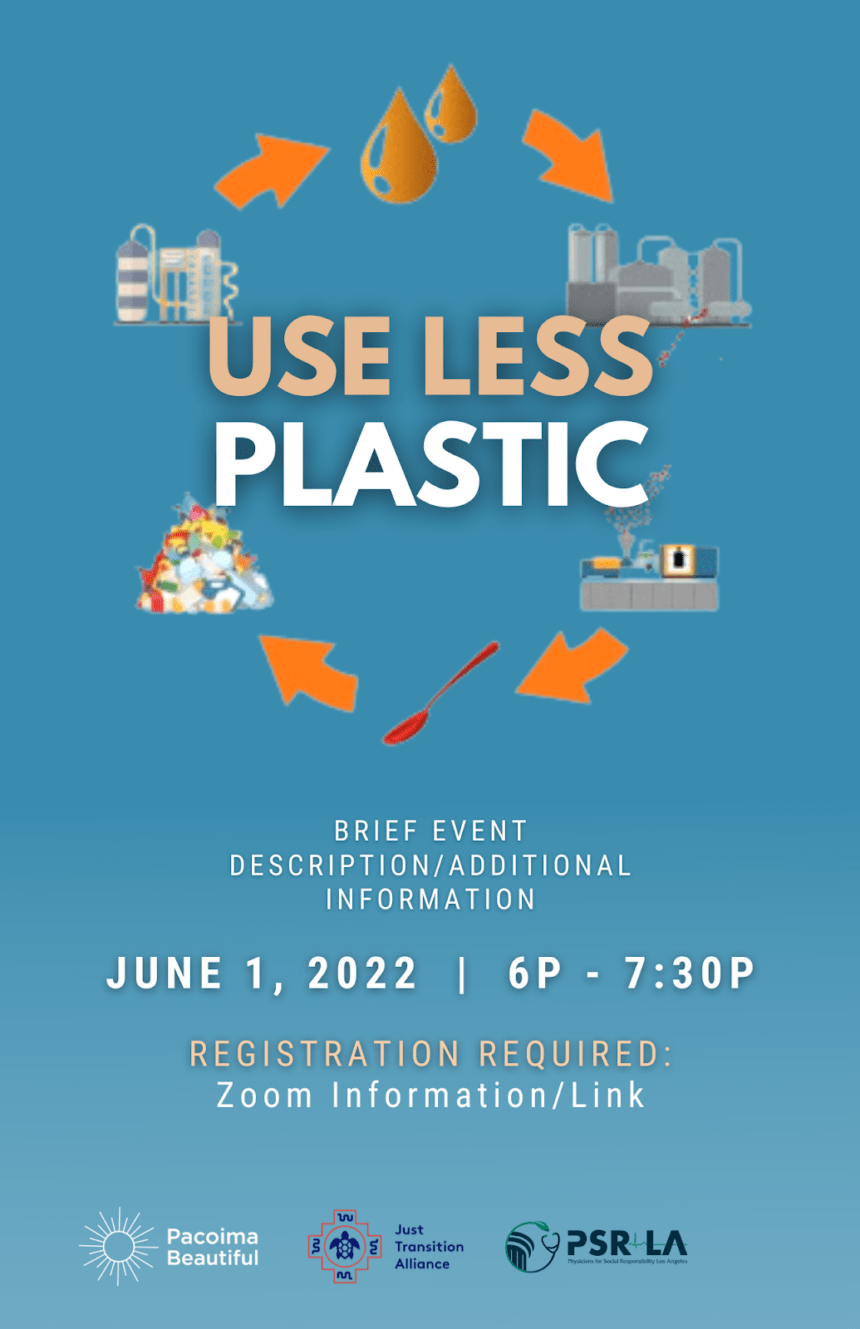EJCAP launch flier announcing our EJ-centered plastics campaign depicts the toxic life cycle of plastics and reads, “USE LESS PLASTIC.”
Last year, in partnership with our comrades at East Yard Communities for Environmental Justice, Pacoima Beautiful, and Physicians for Social Responsibility–Los Angeles, JTA launched the EJ Communities Against Plastics coalition (EJCAP). This community-led coalition was formed to ensure that any public dollars committed by federal, state and local legislation (to curb plastics pollution) are prioritized for local, zero waste strategies identified by those communities and workers presently and historically most-harmed by the cradle-to-grave impacts of plastics production, consumption and waste.
With SB 54 – the new California state law passed to tackle plastics pollution, committing $50 billion (over ten years) to reduce harm and increase benefits for the EJ communities most harmed by plastics pollution, EJCAP is presently working with allies in labor and mainstream environmental groups to meaningfully engage in CalRecycle’s implementation process, so that frontline voices and needs are centered in the design and implementation of Producer Responsibility directives and guidelines. EJCAP insists that this regulatory framework must go beyond advocating “recyclable and reusable packaging” and seeks to end the era of toxic plastic production and waste, replacing harmful industries like waste incinerators and ethylene crackers with community and worker-rooted alternatives.
hile there is now a global treaty mandating the reduction of disposable plastics, the oil, gas and petrochemical sector has actually stepped up their expansion of plastics production around the world – with aims of building over 100 new, polluting facilities such as ethylene crackers and toxic, chemical recycling facilities near racialized, impoverished and disproportionately harmed communities across the US. EJCAP is presently looking at ways we can build a replicable model for frontline leadership to guide plastic pollution reduction strategies, from advancing local and state legislation to intervening in global and federal policy tables where evil industry lobby groups like the American Chemistry Council have far more influence.
We are presently developing Participatory Action Research and popular education tools to support frontline community leadership in determining just transition goals and pathways – beyond the present plastics-petrochemical paradigm, and towards economies of caring, sharing, mutuality and solidarity governed by local communities and workers

